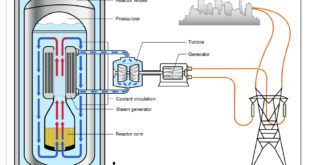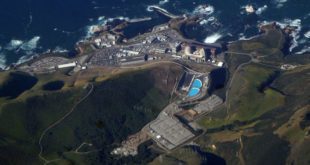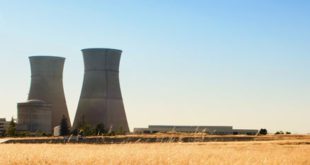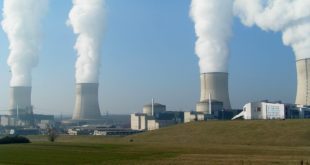IOWA CONSUMER’S ANNUAL UTILITY BILLS COULD CLIMB OVER $800 IF LEGISLATURE PERMITS UNFAIR NUCLEAR REACTOR FINANCING METHOD
Cooper: Example of 4 Southern States Proves That “Robbing” Ratepayers Before Power is Produced Leads to More Expensive Reactors, Higher Than Necessary Rates for Consumers; Major “Electricity Rate Shock” Expected if Iowa Lawmakers Embrace “Nuclear Socialism.”
A leading U.S. expert on nuclear reactor financing is warning that a bill pending in the Iowa Senate to allow MidAmerican to charge in advance for the construction of new nuclear reactors could lead to significantly more expensive utility bills for state consumers, up to $70 higher a month ($840 per year).
In a report titled “Nuclear Socialism Comes to the Heartland of America: Early Cost Recovery for New Nuclear Reactors in Iowa and The Return of Electricity Rate Shock,” analyst Mark Cooper shows how the examples of four Southeastern U.S. states – North Carolina, South Carolina, Florida and Georgia – have led to major harms to consumers when “early cost recovery” or “construction work in progress” (CWIP) is used to finance nuclear reactors. If the Iowa Senate measure becomes law, Iowa would become only the fifth state in the U.S. to impose such confiscatory, anti-consumer special interest legislation at the request of the nuclear power industry.
Cooper’s analysis concurs with the Staff of the Iowa Utilities Board (IUB), which examined the controversial nuclear financing scheme before the state legislature (HF561), and concluded that it poses a serious threat to Iowa ratepayers. The Cooper report notes: “In addition to the dismal economics of nuclear power, the primary reason that the practice is limited to a very few states is that advanced cost recovery is fundamentally flawed, placing ratepayers at extraordinary risk for an excessive and unnecessary cost burden that runs into the billions of dollars. The staff of the IUB has raised a number of concerns about the advanced cost recovery legislation now stalled in the Senate that reflect the long-standing and well-documented concerns of ratepayer and consumer advocates.”
Mark Cooper is senior fellow for economic analysis, Institute for Energy and the Environment, Vermont Law School, and author of “Policy Challenges of Nuclear Reactor Construction, Cost Escalation and Crowding Out Alternatives” (2009).
Commenting on his report, Cooper said: “Past experience and current developments in the few Southeastern U.S. states that have allowed advanced cost recovery for nuclear reactors indicate that removing consumer protections will impose significant costs on Iowa ratepayers and expose them to extraordinarily dangerous risks. The push for early cost recovery for construction of nuclear reactors in Iowa and elsewhere is driven by one basic truth about new nuclear reactors: They are totally uneconomic. The markets won’t touch these projects so the industry’s only alternative is to enlist state lawmakers to leave consumers holding the bag.”
Steven Falck, senior policy advocate, Environmental Law & Policy Center (Des Moines, IA), said: “If this bill passes, Iowans would see massive rate hikes while being stripped of key protections that have served us well. As the IUB staff pointed out, ‘HF 561 would shift nearly all of the construction, licensing, and permitting risk associated with one or more nuclear plants from the company to its customers.’ The ratepayers would be stuck paying for the most expensive power generation and would assume 100 percent of the risk associated with unproven, uncertified, modular nuclear technology.”
The Cooper report notes: “In the four states in the Southeast where funds are being collected from ratepayers under new advanced cost recovery for nuclear reactor construction in the Southeast, each individual nuclear reactor project costs $15 to $20 billion. Over $4 billion has already been approved for advanced cost recovery, yet it appears increasingly unlikely that the most of reactors will ever be built. Ratepayers will have paid billions but received nothing for their money. If reactor construction moves forward as proposed, almost $85 billion of construction costs will move into the utility rate-base causing rapid increases in typical consumer bills within a decade. Less costly, more consumer and environment friendly alternatives will be crowded out of the resource mix. “
The Cooper report also points out:
* New nuclear reactors cannot compete with a large number of alternatives resources that are widely available to meet consumer needs for electricity.
* They are so risky, they cannot raise capital in normal financial markets.
* In order to build new nuclear reactors, the utilities are demanding the suspension of the regulatory rules and financial market mechanisms that protect ratepayers and balance the interests of consumers and utility shareholders.
 Alternative Energy HQ solar power for homes, wind energy, and bio fuel issues
Alternative Energy HQ solar power for homes, wind energy, and bio fuel issues






